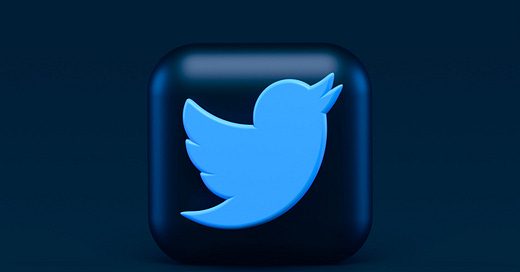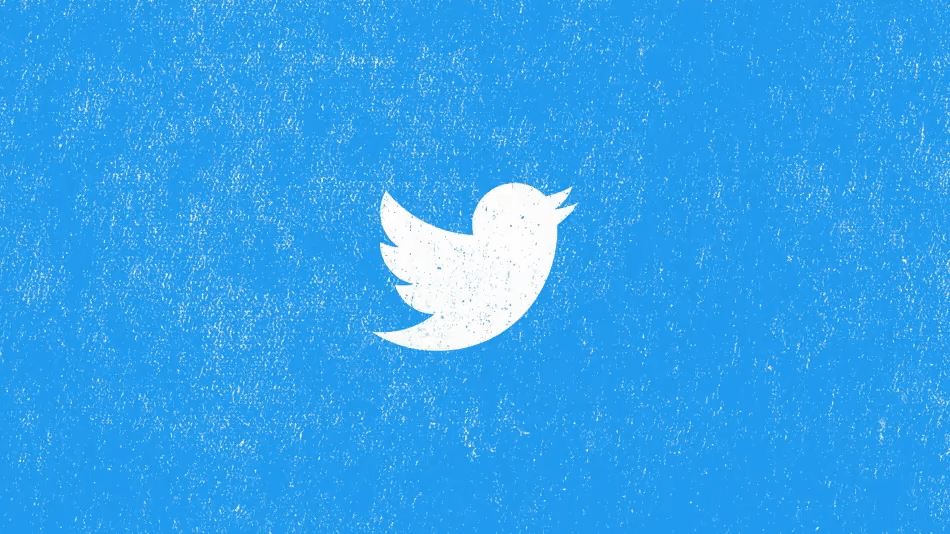👋 Welcome to FWIW by David Tvrdon, your weekly tech, media & audio digest.
In this edition
Twitter wants to screw up Twitter again
Where are Europe’s top digital nomad villages
Spotify Culture Next report was published with interesting data
Note for 🇸🇰 readers: In Slovakia, I have co-launched a new portal podcast database with all Slovak podcasts out there to help with discovery and also to bring podcast news and information to the local community. Last week I shared the wrong link, so here you can find the right one: skpodcasty.sk. For podcast creators, we have a fun feature - Spotify and Apple Podcasts podcast charts.
Twitter also wants you to stay on Twitter and never leave
Twitter introduced Twitter Notes, a way to write beyond 280 characters. Notes will give people the ability to go over 280 characters on Twitter in a single piece of content, with the inclusion of photos, videos, GIFs, and Tweets. Notes can be written, published, and shared on Twitter, and read all across the Internet.
I did a Twitter rant about this (because where else). Here is an edited version of it:
I think it's a bad idea. Let me explain. Twitter is by far not the first to try this (native blog on the platform) - Facebook had Notes (and shut them down), LinkedIn had articles which didn't work and turned that idea into newsletters.
Twitter has Revue and had been doing a good job integrating it into the platform and utilizing the synergies to benefit the newsletter writers & publishers - they own the e-mail, can take it elsewhere, e-mail is their platform. Twitter is Twitter's platform.
I've always viewed with suspicion when a platform announced it wants to "make it easier for users to consume content within the platform". Sure, the benefits for Twitter are obvious, not so much for users and the public infrastructure Twitter built.
Sure, let's build better way to read and write threads within Twitter but hiding that content within a "note" is something that I feel goes against what make threads and Twitter useful.
Also, do we think Twitter's algorithm will prioritize notes over threads or links?
There are a million ways in which Twitter could make threads easier to create, make it less of a messy experience to read, and still keep all of it as separate Tweets.
Notes is the most lazy solution out of any solution out there.
If you so desperately want the return of blogging, make the Revue editor more straightforward (simpler, like Substack) or buy Medium which is nicely optimized for reading, discoverability and has already built-in SEO features.
This really feels half-baked.
TECH
🤭 Leaked audio from internal TikTok meetings indicate ByteDance staff in China repeatedly accessed data about US TikTok users. At the very least, engineers in China had access to US data between September 2021 and January 2022. [BuzzFeed News]
RELATED: TikTok has completed migrating its US users' information to servers at Oracle, in a move that could address US regulatory concerns over data integrity on the popular video app. [Reuters]
👀 The first hands-on with the Nothing Phone 1.
🧳 Where are Europe’s top digital nomad villages? Many of Europe’s top digital nomad destinations are still in big cities like Lisbon, Barcelona and Budapest. But there are others emerging: Madeira and Lagos (Portugal), Bankso (Bulgaria), Trento (Italy) and others. [Sifted.eu]
🙌 iOS 16, iPadOS 16, and macOS Ventura add an Automatic Verification option, which lets users bypass CAPTCHAs on websites and in apps that support the feature. Apple says iCloud will automatically and privately verify your device and Apple ID account in the background, eliminating the need for apps and websites to present you with a CAPTCHA verification prompt. [MacRumors]
😶 Microsoft’s Surface Duo 2 phone improved. At least nine software updates and a sizable price cut have transformed Microsoft’s dual-screen phone. Also, third generation might be coming in 2023. [The Verge]
🤪 A new study’s findings suggest that working in VR won't actually increase a worker’s productivity, comfort, or wellbeing. Volunteers who spent a working week in a virtual-reality environment have reported more anxiety, lower productivity and migraines. [New Scientist]
😮 GitHub launches Copilot AI, which suggests lines of code to developers. GitHub says nearly 40% of code is now being written by Copilot. Price: $10/month or $100/year. It will remain a free tool for verified students and maintainers of popular open-source projects. [The Verge]
🤔 Ikea’s new virtual design tool deletes your furniture and replaces it with Ikea’s. To help visualize how the furniture could look in your home. In other words, Ikea found another way to convince you to buy new furniture. [The Verge]
👩💻 MacBook Pro 13-inch (M2) review: Unimpressed. [The Verge]
👎 This is creepy: Amazon is working on letting Alexa mimic any voice after hearing less than a minute of audio, as a way to “make the memories last” of deceased family members. To be fair, the example given was it could mimic a grandmother’s voice so it could read “The Wizard of Oz” to a child. OK, still creepy. [Reuters]
🤗 This is fun: Most popular websites since 1993.
👍 This is useful: How to use markdown in Google Docs. [Wired]
📚 11 of the best technology books for summer 2022. [Fast Company]
MEDIA
📬 A Q&A with Axios’ Sara Kehaulani Goo on bundling newsletters as an audience engagement strategy. [Digiday]
🥱 Meta to roll out new monetization tools on Instagram and Facebook. The most notable: creator marketplace where they can get discovered by partners (brands, companies), expanding NFT testing on Instagram and monetization of Reels. [TechCrunch]
📺 In the US, streaming viewing continues growing, making up 32% of total TV time. Netflix is still No.1, follow by YouTube, Hulu, Amazon and Disney+. [Nielsen]
👏 For the first time, more than half of The Economist’s subscribers are digital-only. The Economist reached 1,185,00 subscribers in 2021. Just over half (52%) of subscribers are now digital-only, compared to 44% in 2021 and 35% in 2020. The Economist Group annual report also claimed more people were choosing annual subscriptions rather than monthly ones [Press Gazette]
🧐 Semafor, the global news startup by Justin Smith and Ben Smith, is set to launch this fall. Semafor's "North Star" is to address the global crisis of consumer trust in news through talent and innovation, wrote Justin Smith on Twitter. [NY Times]
➡️ Strategies for managing "sleeper" subscribers. This is a really helpful and thoughtful piece on how to approach sleepers (30 or more days inactive, usually much longer). Mostly, publishers choose to leave them as they are and that can blow up one day. A proactive approach with a wake-up call and an re-onboarding process similar to that for news subscribers is advised. [Toolkits]
FROM THE FIX
1️⃣ News avoidance on the rise, trust in news falling – key insights from 2022 Digital News Report
2️⃣ 10 key takeaways for news subscription managers from the 2022 Digital News Report
3️⃣ What’s wrong with Reuters coverage of the war in Ukraine
4️⃣ Five lessons we learned from running the campaign to save Ukraine’s media
5️⃣ Plant-based cooking brand—Twisted Green—shows social-first is fertile ground for publishing
[ 📬 Get The Fix newsletter delivered to your inbox every week with the latest insights, news, and analysis about the European media market. Sign up here > ]
AUDIO
📊 Spotify Culture Next report came out (US data). 78% of Millennials and 71% of Gen-Zs agree that they use audio to reduce their stress levels. 52% of Millennials said they like audio advertising because they can use their imagination to picture everything in their head. Two-thirds of Millennials and Gen-Zs around the globe said they currently listen to podcasts weekly, according to our research. [Spotify]
🎙 Podcasting on YouTube. A strategic partner manager from YouTube answers frequently asked questions & best practices.
🤩 Do you help listeners find your show? How a website might be the most important thing you're not doing. [Matt Deegan]
❓ Poll: Just a simple question: Twitter Notes or Newsletters?
🙌 Thanks. I used HandyPolls to create this poll (instructions).
Last poll results: Are you afraid of an AI becoming sentient? 78% don’t think it will be in their lifetime, 13% aren’t afraid and 9% are.
🙏 And big thanks to Celine Bijleveld who helped me edit this newsletter. You can follow her on Substack here.








